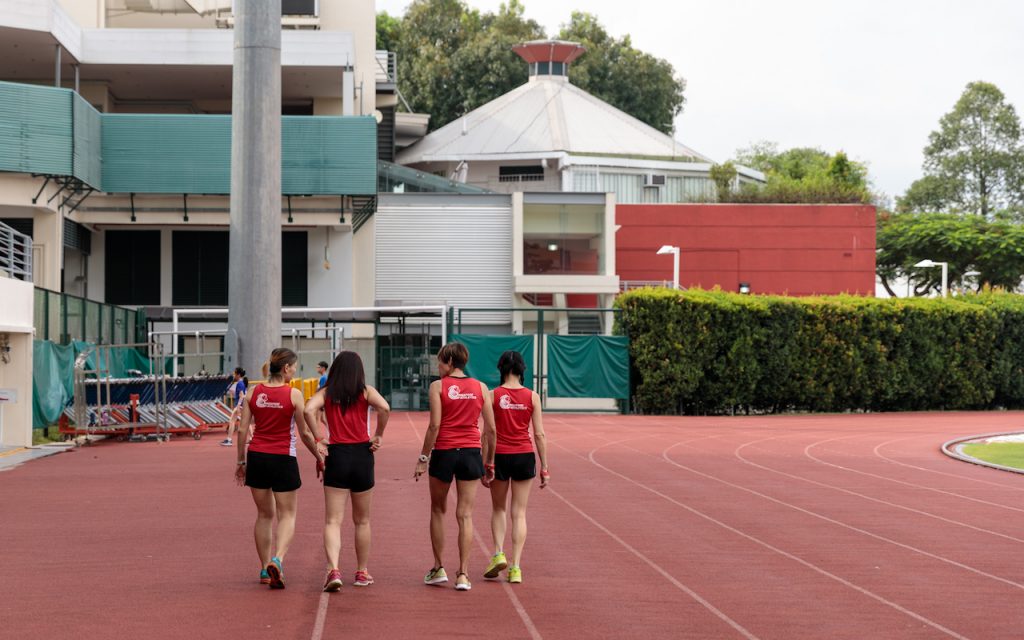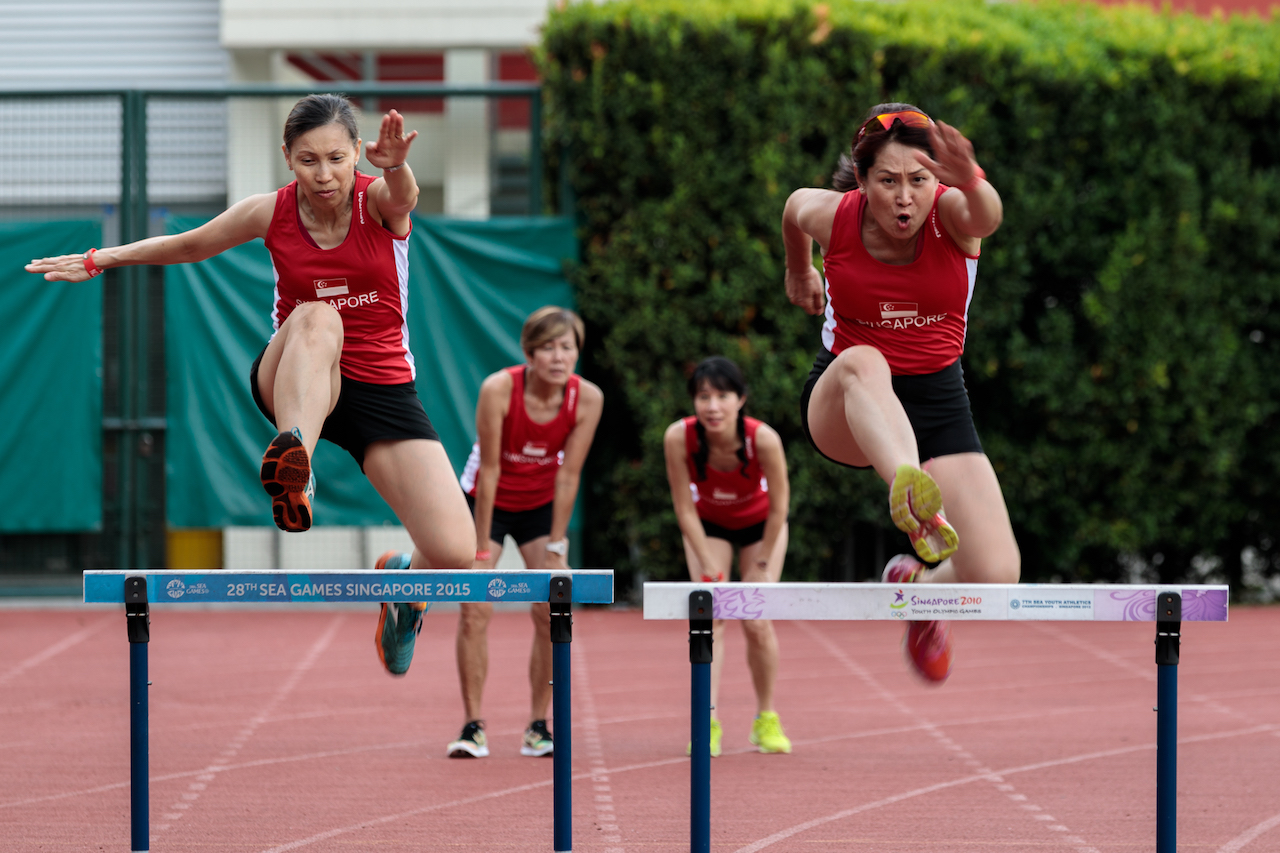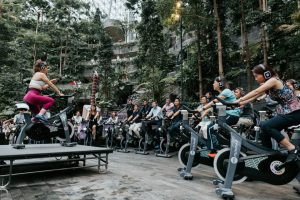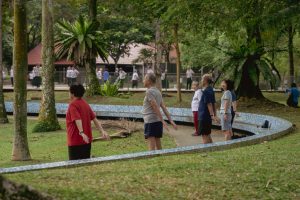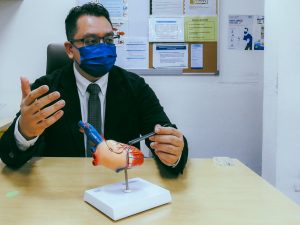“Hey, chiobu! Long time no see!”
As Jenny calls out into the distance, we watch Anne saunter towards us, a cooler bag in one hand and a duffel bag in the other. She’s the last member of the team to arrive—the team that brought home 4 Gold and 4 Silver relay medals at last year’s Asia Masters Athletic Championships. In the 4x400m event, they had broken the record by 19 seconds.
The Asia Masters is special because it’s held in a different Asian country every year, and all competitors are above the age of 35. When it first started in 1981, there were 408 athletes from 8 countries. Last year, the competition saw 2000 athletes from 25 participating countries.
As for these ladies, they’re all above the age of 50.
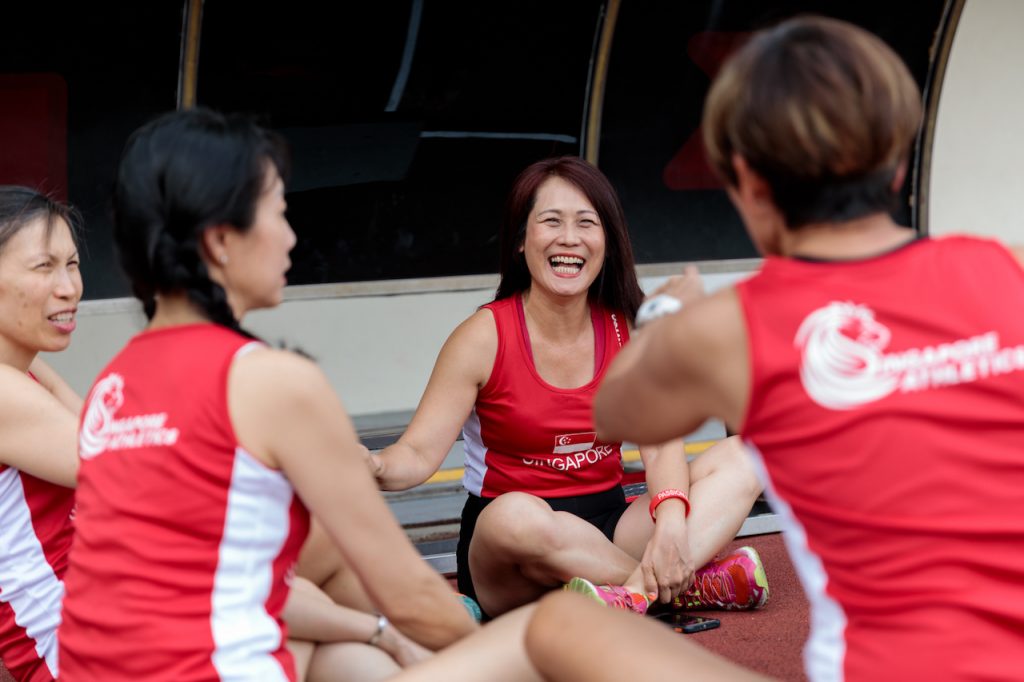
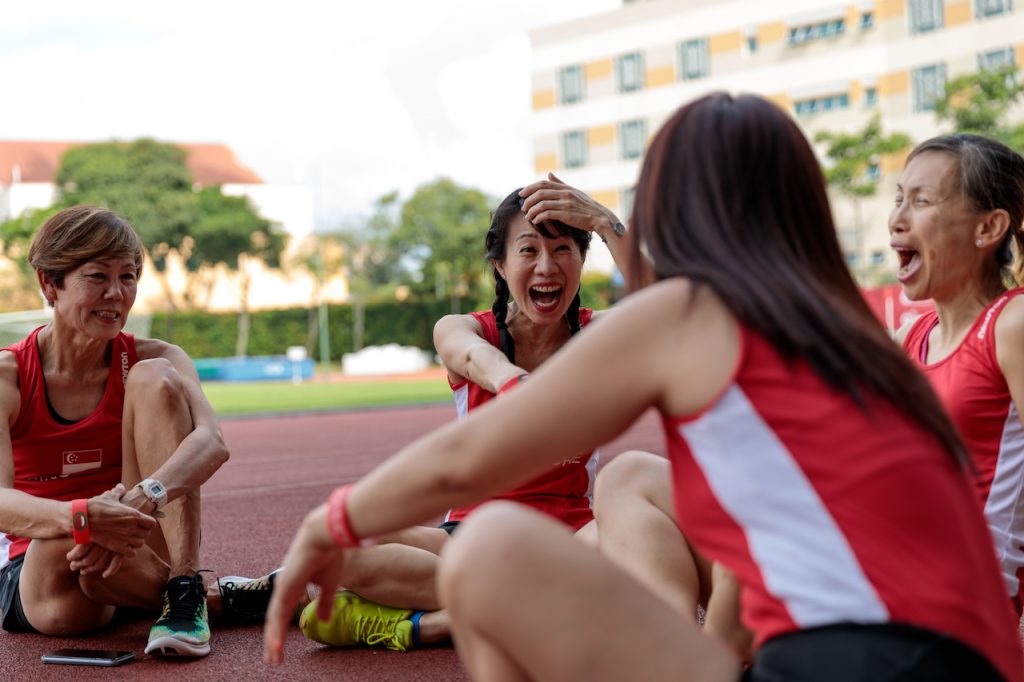
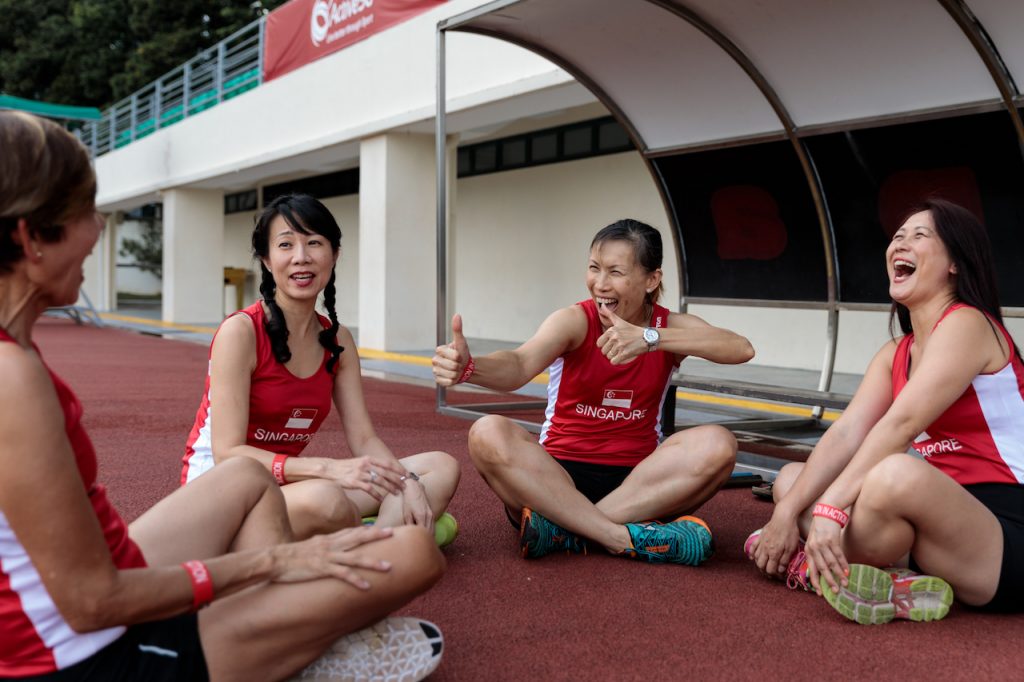
Apart from Jenny who turns 60 next year, everyone is either 52 or 53. When I meet them in Bishan Stadium on a breezy Sunday afternoon, it’s hard to tell that they haven’t met each other in over a year.
They have an easy chemistry, and although there are four of them, no one talks over everyone else. Conversation flows freely, and anyone who is accidentally cut off by an enthusiastic remark jumps right back in afterwards like it’s the most natural thing.
Anne shares: “This team works because there’s very little ego. Everyone pays attention to what everyone else needs, and no one is afraid to be honest about things like injuries.”
In the lead up to last year’s competition, they didn’t always have the opportunity to train as a team. But everyone understood the weight of their commitment, and made sure that they put in the work on their own.
Prior to last year’s Asia Masters, they had already known each other but never competed as a team. While they acknowledge that teamwork is about the camaraderie and having fun, it also goes a little deeper.
Jenny tells me that once the relay team was formed, it was no longer about them as individuals. Because last year’s Asia Masters was held at the Singapore National Stadium, on home turf, the priority became to do Singapore proud.
“It was like our national duty,” Belinda adds, “So it was very important that we work together and do our best as a team.”
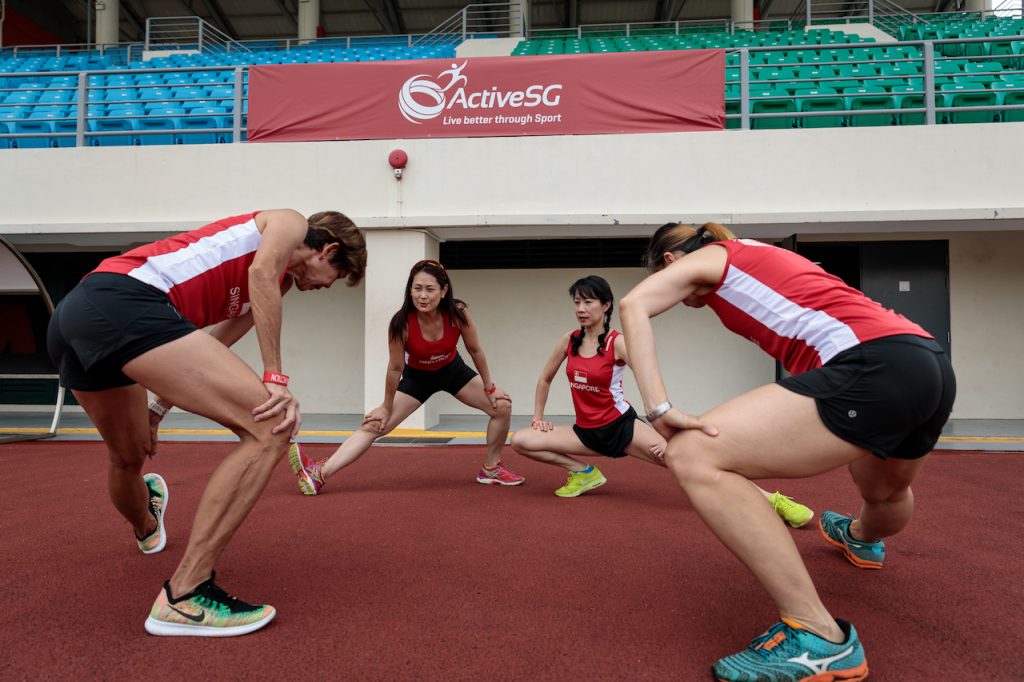
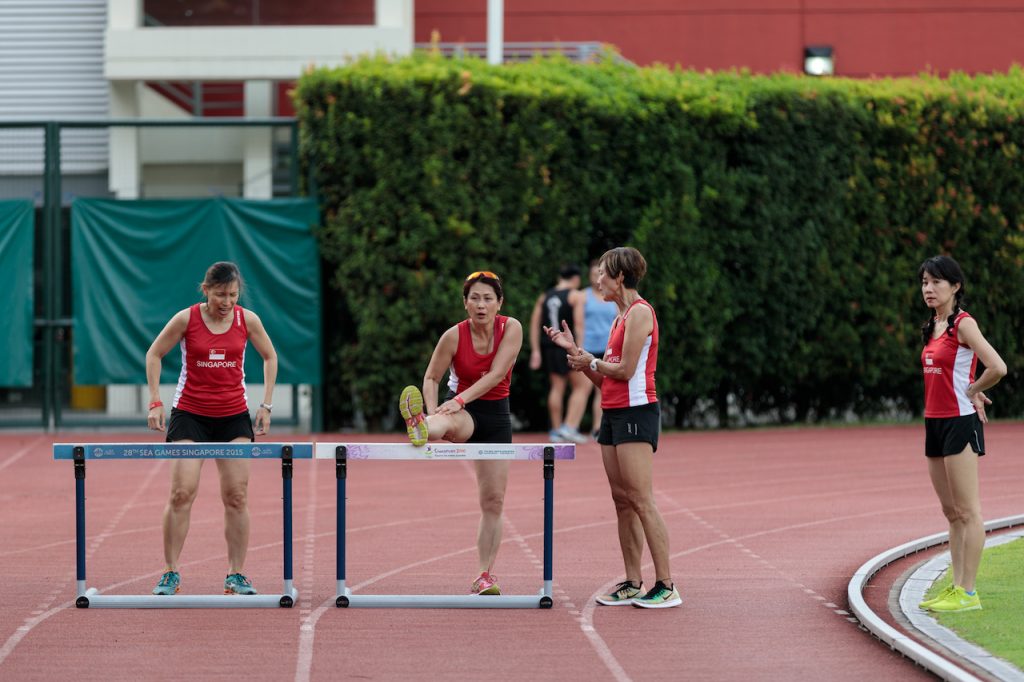
Christina shares about the cyclical challenge of Masters Sports that can be summarised in 5 S’s: “Number one, you have to be eager to Start. Number two, if you are not Slim, you are too fat and can’t start. Number three, no Strength, then it means you are too weak and too fat. Number four, Speed. You can’t be too slow and have no strength. Number five, Stress! Too slow, because not slim, no strength, no speed, cannot, so you stop.”
Giggling, Anne volunteers, “So to summarise in one S, you must be Sexy!”
While the ladies laugh about this, with Jenny adding in Hokkien that they are all very vain and always complaining that they are getting fatter with age, they say this with good humour rather than out of resentment or self-consciousness. They want to look good and be fit for themselves, not for anyone’s judgment.
Later, Christina comments that I have very neat handwriting. I say that it only looks neat from far, and she responds by joking that she’s getting old and so her eyesight isn’t so good anymore.
This is basically the kind of positive yet realistic attitude that these women share. They recognise that they’re not getting any younger, but are also perfectly comfortable with where they are in life, refusing to see their age as an obstacle in the path of whatever they choose to pursue.
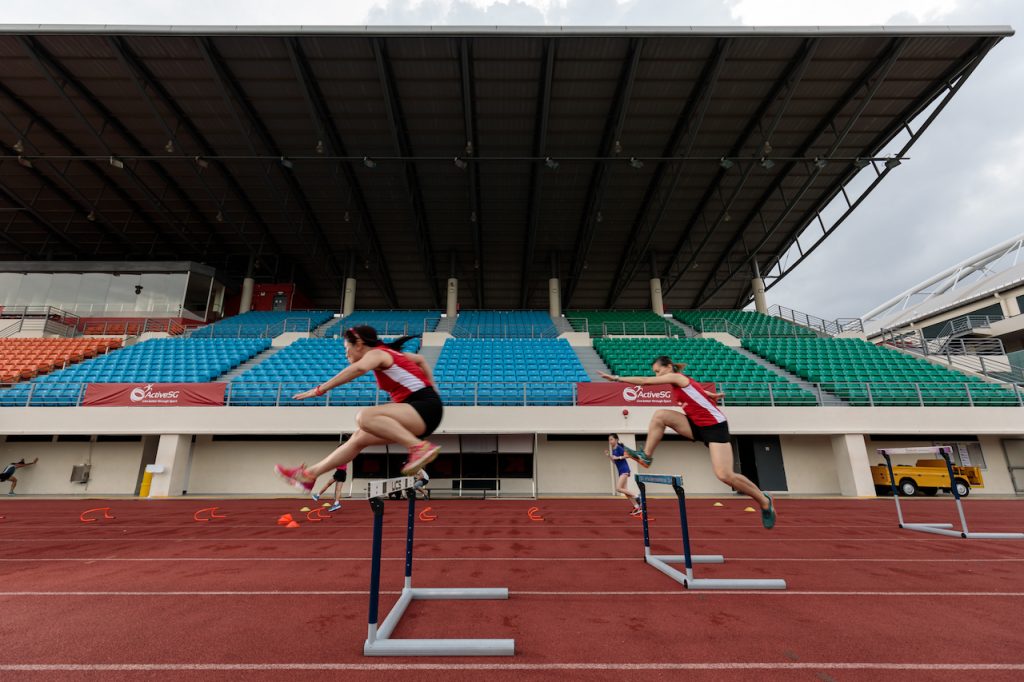
Belinda quips that unlike Jenny, who has degrees in physical education and sports psychology from the University of Oregon, and used to be a 400m and 800m champion in the 70s, what she brings to the team is her inexperience. She doesn’t take anything seriously at all, and only cares about showing up and doing her best.
Later, I find out that while Belinda wasn’t always a track and field athlete, she used to represent Singapore in both squash and water skiing, and only transitioned into athletics in her 30s. Between 2004 and 2011, she was also a triathlete.
Christina, on the other hand, is the one who’s always ‘super on,’ making sure that everyone shows up on time, and knows what they have to do. She organises everyone and everything, and even across the course of our interview, she tries to get the rest of the ladies to join a 4 x 100m relay that’s happening in conjunction with ActiveSG.
When Anne says that Christina is their team captain, everyone echoes in agreement.
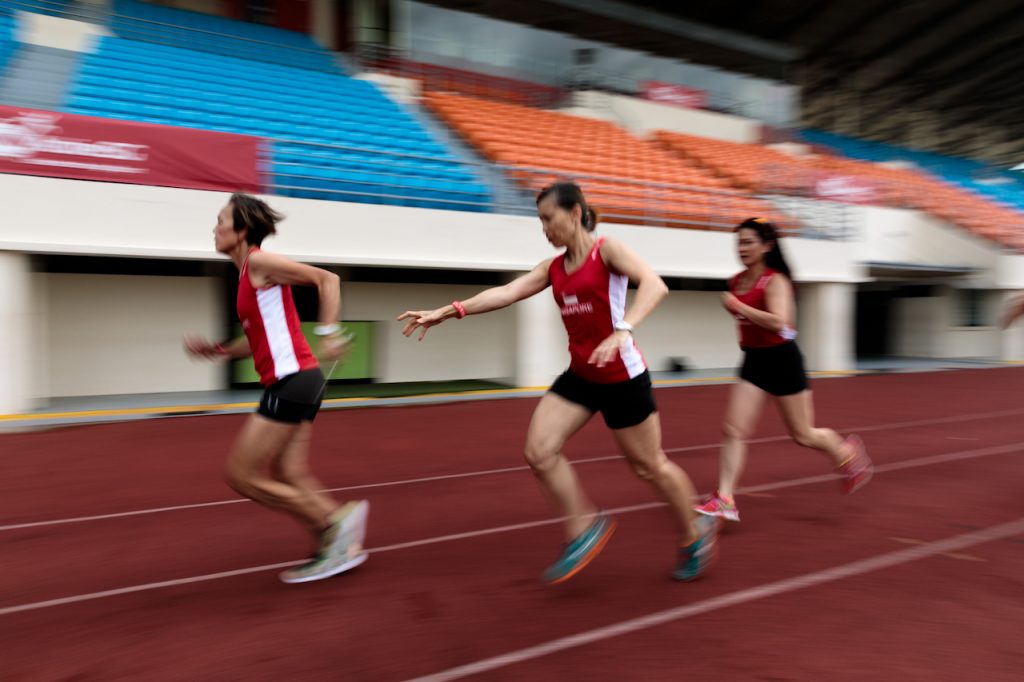
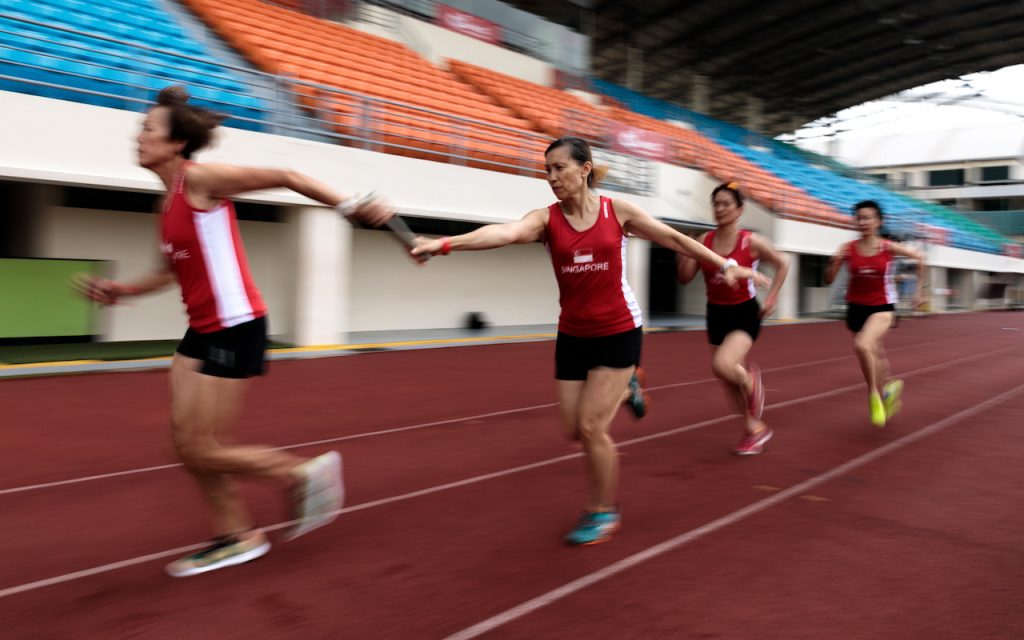
While they might have gotten older, they’ve also gained a better understanding of their limits and their injuries. Jenny shares that when she tore her meniscus and had to have open surgery, even her doctor couldn’t get her to stop training.
Belinda adds that when they meet physiotherapists who tell them to stop training, they just look for new physiotherapists. Although this sounds like a joke and they all laugh, I suspect that they’re actually serious. They say that when people ask why they still exercise, their response is always: “Why did you stop exercising?”
Anne, who has an otherwise gentle demeanour, chimes in: “If you grow old, and you choose to let yourself go, you bear the consequences. I’ve chosen to stay fit because exercise is important to me. It’s in our blood.”
In that moment, she sheds her demure exterior, and I catch a glimpse of that game face that all athletes have. Christina’s comes alive when she practises her hurdles later on, whereas Jenny looks like she’s always ready. Belinda is the only who seems completely chill regardless of what’s going on, happy to just play her part.
They tell me that they constantly meet people who are surprised that at this age, they still run competitively. Some envy them, some admire them. When Jenny ran at the Asia Masters, the parents of the students she works with showed up to show their support.
They were all so impressed that she was competing.
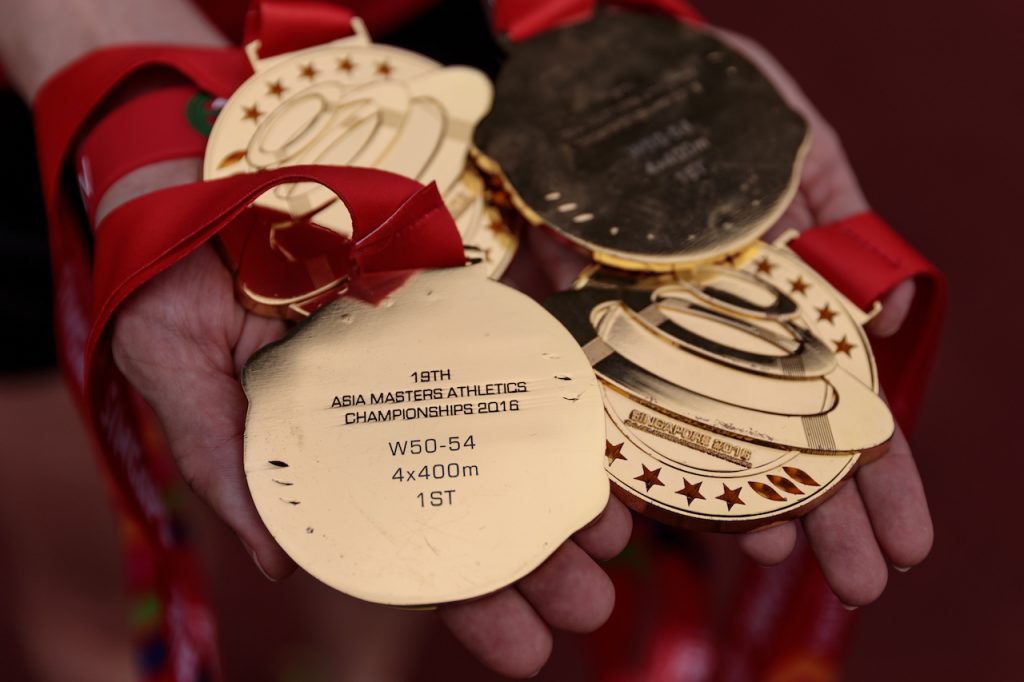
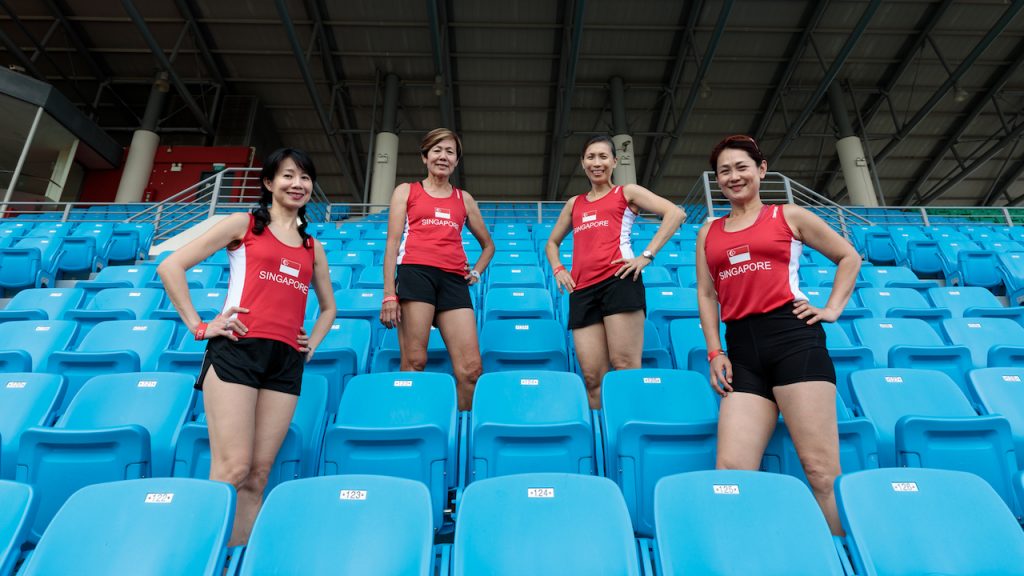
But apart from being mothers and athletes, they also hold down full-time jobs.
Belinda is a lecturer at Lasalle, and is also a composer and arranger. Christina is an associate lecturer at the Singapore University of Social Sciences. Jenny works at the Singapore Sports School, and Anne is a doctor. Because so many of them work in education, being a source of inspiration has become central to why they do what they do.
As Jenny elaborates, her experience has become a source of knowledge for her students. From organising logistics and knowing where to report to during sports meets, and even being prepared for the pressure that large venues can bring, all this is invaluable preparation that her own involvement in competitive athletics allow her to provide.
While the women might have realised, with maturity, that winning isn’t everything, it still goes without saying that they want to win. That doesn’t really change.
At the end of it all, what matters is that they eat, sleep, and breathe athletics.
